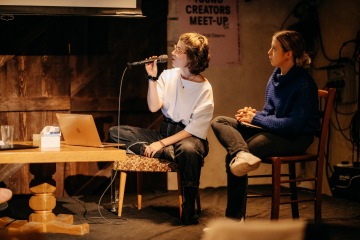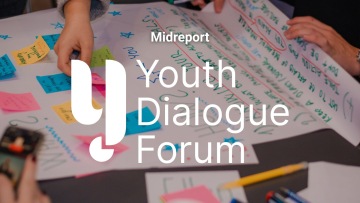Share your opinion and win a trip to Krakow!

The first Youth Dialogue Forum digital discussion is coming to an end! Join the discussion on how misinformation affects your everyday life, share your views, and win a weekend trip to Krakow!
Misinformation is everywhere, appearing in our feeds and even at the dinner table. We are not sure how big a problem it actually is, but we fear that with the growing influence of AI, it will only get worse. So how can we find the truth?
Join the discussion and let's discover together how others perceive it. Share your experiences in a unique international discussion. Vote on 35 opinions and get the chance to participate in a live forum in Krakow (January 23-25, 2026). We'll cover all expenses! The entire discussion is anonymous and open until November 7, 2025.
Tips for effective participation
DEMDIS provides a unique method that allows citizens to engage in open and fair dialogue.
- Vote on the opinions of others and add your own.
- Be mindful of the context of other communities (when mentioning your community, you do not need to name it explicitly) and respond based on your own experiences.
- Automatic translation is enabled in the digital discussion, so you can contribute in Czech. For more information on how the DEMDIS discussion works and its methodology, click HERE.
How do we view misinformation? Is it an overblown issue or not?
Young people as part of the solution.
No one is immune to misinformation
Misinformation in the age of AI
What will happen with the results of the discussion?
The results of this discussion will help us better understand how misinformation affects people and communities across countries. Based on these results, we will prepare further steps: subsequent digital discussions will focus on finding specific solutions. These findings will also help us create a framework for a live discussion in Krakow, where selected participants will meet to discuss and formulate specific recommendations on the issue. Each ambassador will receive both a national and local report showing how their community understands and experiences the issue. For more information, see the links below.


